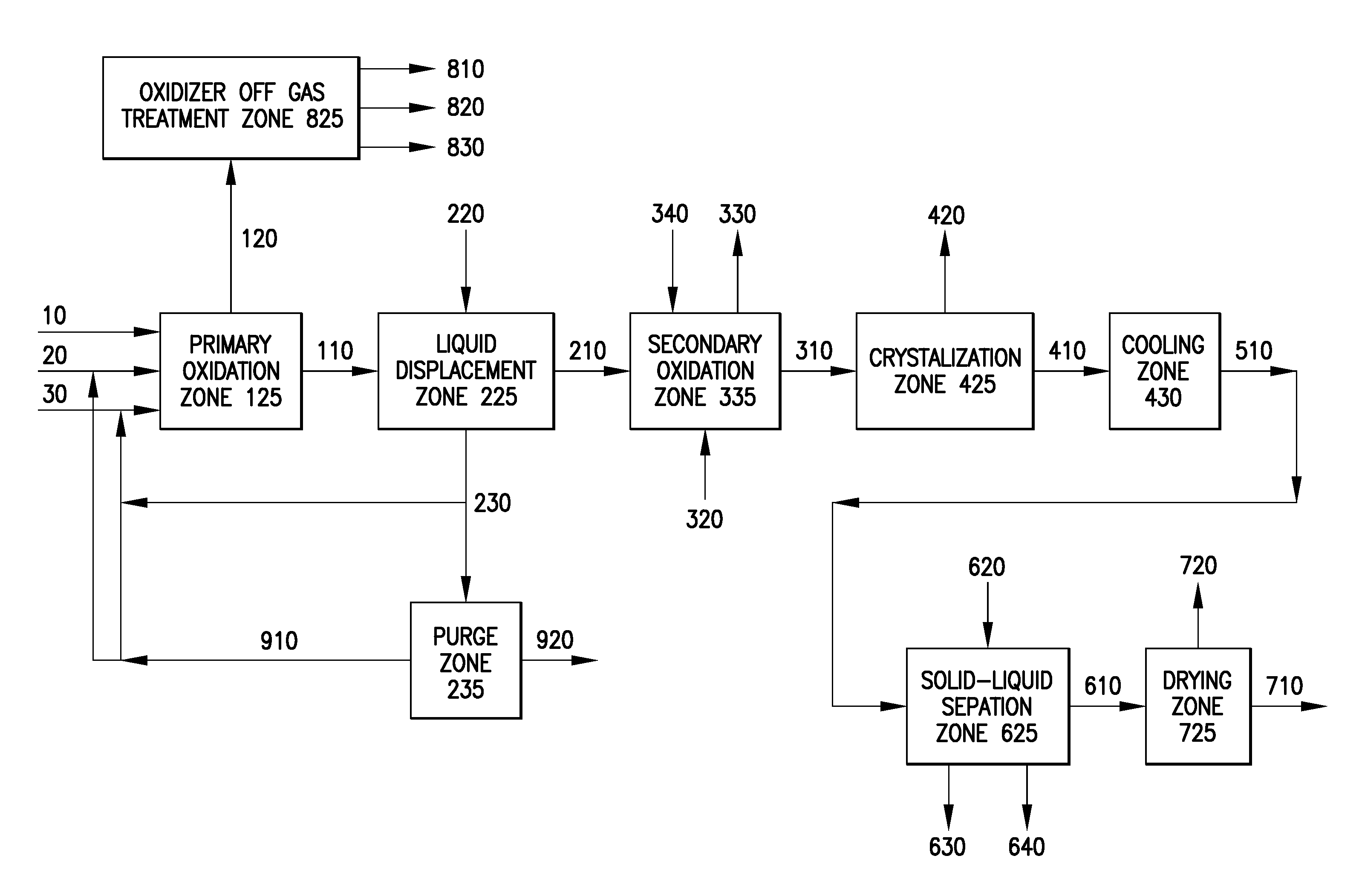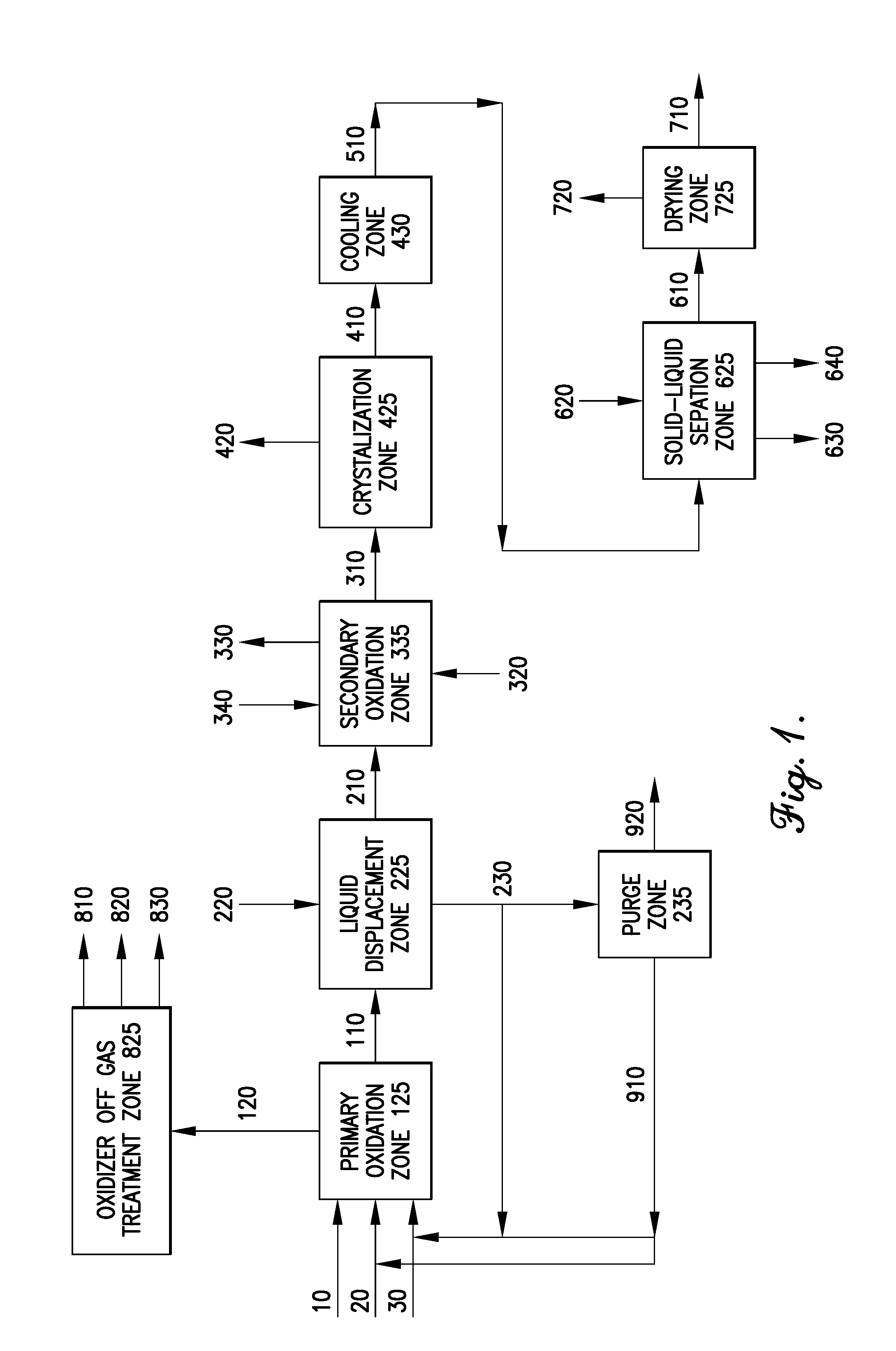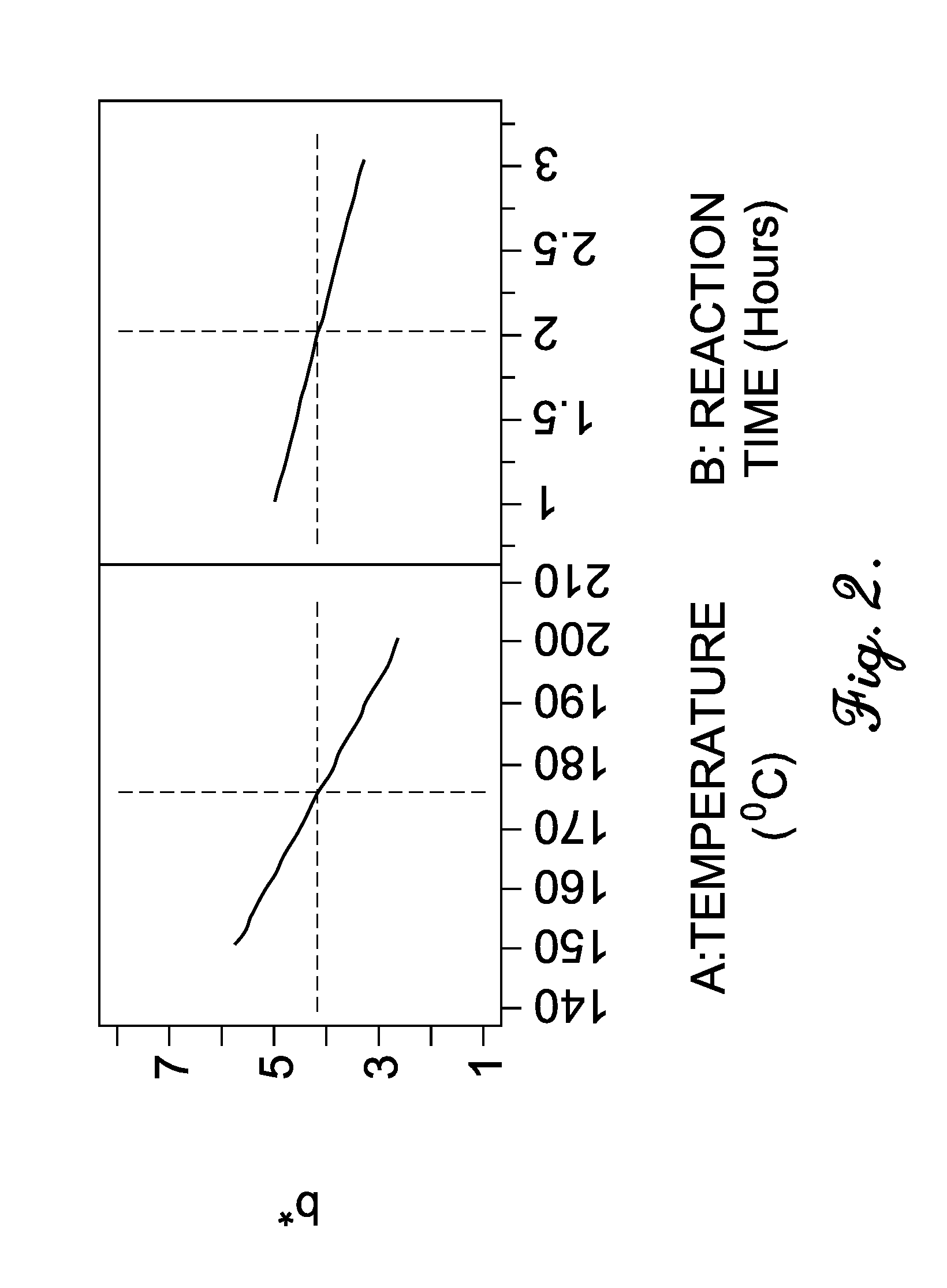Oxidation process to produce a purified carboxylic acid product via solvent displacement and post oxidation
- Summary
- Abstract
- Description
- Claims
- Application Information
AI Technical Summary
Benefits of technology
Problems solved by technology
Method used
Image
Examples
examples
[0072]This invention can be further illustrated by the following examples of embodiments thereof, although it will be understood that these examples are included merely for the purposes of illustration and are not intended to limit the scope of the invention unless otherwise specifically indicated.
examples set 1
[0073]In Examples 1a-4b, glacial acetic acid, crude FDCA that contains some FFCA and the catalyst components in concentrations described in Tables 1, 2, 3 and 4 were transferred to a 300 mL titanium autoclave equipped with a high pressure condenser and a baffle. Cobalt, manganese and ionic bromine were provided as cobalt (II) acetate tetrahydrate, manganese (II) acetate and sodium bromide and / or aqueous hydrobromic acid respectively. The autoclave was pressurized with approximately 50 psig of nitrogen and the reaction mixture was heated to the desired temperature in a closed system (i.e., with no gas flow) with stirring. At reaction temperature, an air flow of 1500 sccm was introduced at the bottom of the solution and the reaction pressure was adjusted to the desired pressure. After 30 seconds from the start of air feeding, 1.0 g of peracetic acid in 5.0 mL of acetic acid was introduced using a blow-case to start the reaction. The reaction continued for desired period of time and th...
examples set 2
[0096]In Examples 5a-7b, glacial acetic acid, crude FDCA that contains some FFCA and the catalyst components in concentrations described in Tables 5, 6 and 7 were transferred to a 300 mL titanium autoclave equipped with a high pressure condenser and a baffle. Cobalt, manganese and ionic bromine were provided as cobalt (II) acetate tetrahydrate, manganese (II) acetate and sodium bromide and / or aqueous hydrobromic acid respectively. The autoclave was pressurized with approximately 50 psig of nitrogen and the reaction mixture was heated to the desired temperature in a closed system (i.e., with no gas flow) with stirring. At reaction temperature, an air flow of 1500 sccm was introduced at the bottom of the solution and the reaction pressure was adjusted to the desired pressure. After 30 seconds from the start of air feeding, 1.0 g of peracetic acid in 5.0 mL of acetic acid was introduced using a blow-case to start the reaction. The reaction continued for desired period of time and the a...
PUM
 Login to View More
Login to View More Abstract
Description
Claims
Application Information
 Login to View More
Login to View More - R&D
- Intellectual Property
- Life Sciences
- Materials
- Tech Scout
- Unparalleled Data Quality
- Higher Quality Content
- 60% Fewer Hallucinations
Browse by: Latest US Patents, China's latest patents, Technical Efficacy Thesaurus, Application Domain, Technology Topic, Popular Technical Reports.
© 2025 PatSnap. All rights reserved.Legal|Privacy policy|Modern Slavery Act Transparency Statement|Sitemap|About US| Contact US: help@patsnap.com



